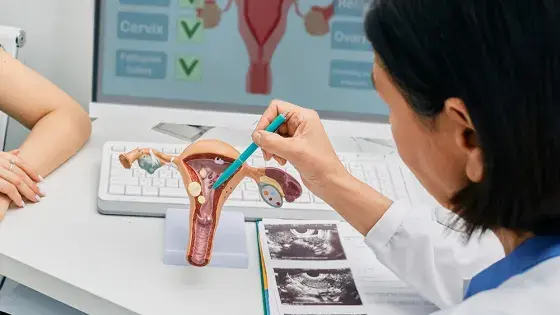If you're returning to work after having a baby, you might wonder whether you can continue breastfeeding your baby. It's up to you to decide how long you want to breastfeed and returning to work doesn't mean you have to stop.
Breastfeeding exclusively is recommended by the NHS for around the first 6 months of a baby’s life and, after this time, you can continue alongside solid food for as long as you and your baby wish. Therefore, if you choose to breastfeed, it's likely that you'll be breastfeeding when you return to work.
You should tell your employer that you're breastfeeding before your first day back. If you have a Human Resources department, they can help you plan for your return – such as finding you a private room where you can breastfeed or express your milk. Though it is not currently a legal requirement for your employer to provide this, they must provide suitable facilities where you can rest. To make the transition as easy as possible, you could:
- Try to find childcare close to work so if you're able to have your baby close to you in the daytime, you could breastfeed in your breaks.
- See if there's an option for you to work flexibly. This could include working part time, working from home, breaking up the working week, having shorter workdays, or working fewer but longer days.
- Experiment with partial breastfeeding. Partial breastfeeding involves breastfeeding when you're at home and expressing milk while you're at work. This means that your baby can drink your breast milk the next day, even when they're away from you.
Chat to other mums about how they managed breastfeeding and going back to work – you could do this at a local mum-and-baby group or on online forums like the mumsnet breast and bottle feeding forum.
How breastfeeding benefits you
Breast milk provides many benefits for your baby and contains vital nutrients to help improve their short- and long-term health. But is also has many advantages for you, such as:
- Helping your uterus get back down to size – after your baby is born, your uterus (womb) will gradually get smaller day by day. Breastfeeding will help speed this up.
- Helping you bond with your baby – breastfeeding is a lovely way to feel close and strengthen the bond between you and your baby.
- Release of a hormone called oxytocin that helps you feel calm and connected to your baby.
- Protect your health – current evidence supports that breastfeeding can lower your risk of developing breast cancer, ovarian cancer, osteoporosis (weak bones), diabetes and cardiovascular disease (conditions affecting the heart or blood vessels).
Information for employers about breastfeeding mothers
Employers have certain legal obligations to breastfeeding mothers. Any work that would present a particular risk to breastfeeding mothers or their babies needs to be considered as part of the worker’s individual New and Expectant Mothers risk assessment, along with ways in which this risk can be controlled. Workplace regulations require employers to provide suitable facilities where pregnant and breastfeeding mothers can rest. In addition, the Health and Safety Executive (HSE) recommends that it's good practice for employers to provide a private, healthy and safe environment for breastfeeding mothers to express and store milk. The toilets are not a suitable place to express breast milk.
Enhanced support could be provided through a breastfeeding policy, offering things such as:
- A break allowance for mothers to express milk
- Provision of a clean, warm, private room (not the toilet) for expressing
- A secure, clean fridge to store expressed milk
- Flexible working hours for breastfeeding mothers.

